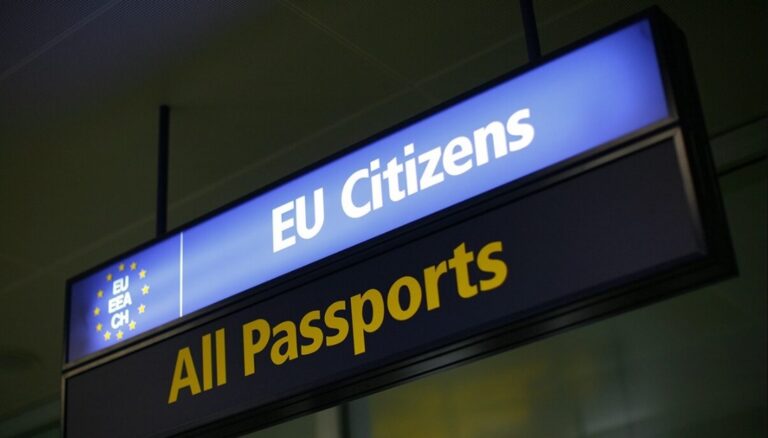
Romania’s accession to Schengen: What will the Austrian interior minister convey to Bucharest? Signals of a „thaw” in Vienna after December veto
Austrian Interior Minister Gerhard Karner is expected to pay an official visit to Bucharest on Wednesday, the first since he vetoed Romania’s December 2022 veto blocking Romania’s accession to Schengen. The visit comes amid increasing European pressure on Vienna over Schengen, but also after police in the two countries launched a series of joint projects to prevent illegal migration.
Urmărește cele mai noi producții video G4Media
- articolul continuă mai jos -
Official sources told G4Media.ro that there has been a „thaw” in Romania’s Schengen accession, without this necessarily meaning that Minister Karner will announce a positive decision on Wednesday.
„Schengen is approaching, Austria will not repeat its veto, and now it is waiting for the best moment to restore its reputation,” the source told G4Media.
What has contributed to this thaw? It’s a combination of factors.
There has been constant pressure from Austrian companies that have big business in Romania. Some of them reacted publicly immediately after the Austrian veto at the Justice and Home Affairs Council on 12 December 2022. What is certain, however, is that most of them have held discussions with representatives of the Vienna government and expressed concern about the possible negative effects of this position on Austrian-owned companies.
Secondly, several influential EU member states have also – publicly and privately – exerted diplomatic pressure on Chancellor Karl Nehammer.
On the 3rd of April, German Chancellor Olaf Scholz, when he came to Bucharest, said publicly that „Germany is firmly on Romania’s side. This means – and I say it again today, here, in no uncertain terms – it also means the objective that Romania finally obtains full Schengen membership this year. We must honour Romania’s efforts (to join Schengen – ed.). I am saying this not only here but also in many European capitals and in discussions I am holding in Brussels to convince the sceptics to agree to this step”.
Charles Michel, President of the European Council, also declared on 27 March in Bucharest that „it is clear to me that Romania has fulfilled all the necessary obligations to join and I hope that a possible solution will be found and I will do everything I can to obtain this decision as soon as possible. It is our common goal in 2023. We will continue to work together. I understand this disappointment of citizens. I would like to be able to tell the Romanian people that there is also support at European level for Romania to join the Schengen area as soon as possible.”
The latest example of support came from Spain, which will take over the rotating EU presidency in July. According to a press release from the Spanish government, Interior Minister Fernando Grande-Marlaska met Austrian Interior Minister Gerhard Karner in Vienna on Thursday 20 April, a few days after meeting Lucian Bode in Bucharest. During the meeting, Spanish Minister Grande-Marlaska conveyed to his Austrian counterpart Gerhard Karner the „firm commitment” of the incoming Spanish Presidency of the EU to unlock Romania’s full Schengen membership and asked his Austrian counterpart for support in this regard. „Spain is an advocate of cooperative rather than fragmented measures,” Grande-Marlaska added, recalling that both Spain and Austria share the status of „destination and transit states for illegal migrants and asylum seekers,” Grande Marlaska said.
Another factor that could lead to warming relations with Austria is the collaboration between the two countries’ police forces on the issue of illegal migration, used as the main reason by Vienna to block Romania and Bulgaria from joining Schengen.
However, it is unclear at this stage whether Minister Karner will make an official announcement in Bucharest on Wednesday or just resume the usual cooperation with his counterpart Lucian Bode, after several months in which diplomatic relations between the two countries were at an all-time low.
Background. Austria vetoed Romania’s accession to Schengen in December 2022, citing poor border protection against illegal migration as the reason.
Romania rejected the accusation at the time and cited statistics from Frontex, the European agency that manages the flow of migrants.
In a joint press conference with Chancellor Olaf Scholz, President Klaus Iohannis announced that if Romania misses out on Schengen entry in 2023, it is unlikely to reach the target in 2024 because of the European parliamentary elections in all EU member states.
Translated

Donează lunar pentru susținerea proiectului G4Media
Donează suma dorită pentru susținerea proiectului G4Media
CONT LEI: RO89RZBR0000060019874867
Deschis la Raiffeisen Bank


